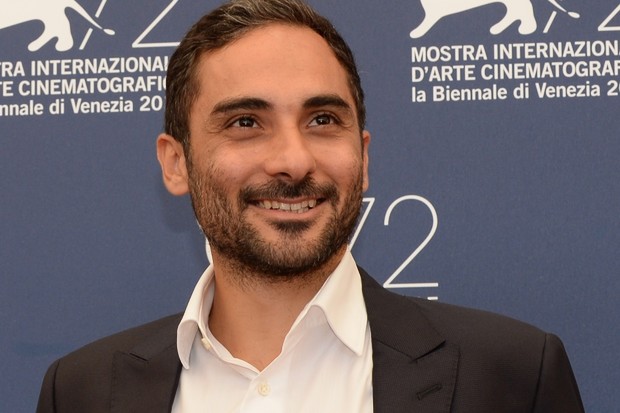Piero Messina • Director
"My film is built on the power of suggestion and memory"
- VENICE 2015: The debut film of Italian director Piero Messina, The Wait, is in competition at the Venice Film Festival

Piero Messina is the youngest of the four Italian directors in competition at the Venice Film Festival. Having graduated with a thesis on Alexander Sokurov – who, as it happens, is also in the running for the Golden Lion with Francofonia [+see also:
film review
trailer
film profile] – Messina has previously worked with Paolo Sorrentino on This Must Be The Place [+see also:
film review
trailer
interview: Paolo Sorrentino
film profile] and The Great Beauty [+see also:
film review
trailer
interview: Paolo Sorrentino
film profile]. The Wait [+see also:
film review
trailer
interview: Lou de Laâge
interview: Piero Messina
film profile], which stars Juliette Binoche, Lou de Laâge and Giorgio Golangeli, is set in the Sicilian countryside and tells the story of a mother waiting for her son to return home, along with the young man’s fiancée. She cannot bring herself to tell the girl that her son isn’t coming back. The film was produced by Nicola Giuliano and Francesca Cima’s Indigo Film with Barbary Films and Pathé. 150 copies will be released in Italy by Medusa from 17 September.
Cineuropa: Has Paolo Sorrentino seen the film?
Piero Messina: Yes, he saw it after the second round of editing. But what he said will remain between us.
How was The Wait born?
It was born from a series of impressions that we tried to bring to life when writing the screenplay, along with childhood memories, and above all from something a friend told me, the story of a father who, following the death of his son, decided not to talk about it, and succeeded so well in avoiding the subject that at some point, those around him started pretending that it had never actually happened. This memory triggered the image of a procession, with thousands of people crying before a piece of wood. People share an idea and in doing so, that idea becomes truth.
And then there’s Luigi Pirandello...
Yes, Pirandello entered onto the scene at the last round of editing, and was something that gave us a way of ending the story with an outsider who enters this Sicilian world. After writing dozens of versions of the screenplay, I was pointed in the direction of Pirandello’s tragedy La vita che ti diedi and his short story La camera in attesa.
How did you put the cast together?
It was Juliette who chose us! I thought it would be nice to have a great actress like her, the production team contacted her agent and she accepted. It’s extraordinary. Once she was on the set she said to me: “I don’t act, I am”. Scene after scene, I saw her bury herself in the pain of her character, sounding her out. I only hit upon Lou De Laage at the end of a very long casting process. She turned up at the audition late but then, as soon as she started reading, I knew she was right for the part.
The characters in the film don’t want to face the reality of mourning.
They’re people who don’t really want to open that door and see what’s on the other side, they prefer to pretend nothing’s there. Like Jeanne, who only makes small steps towards the truth to put off having to properly uncover and accept it.
You’re in competition with Sokurov. What effect does that have on you?
I was so happy, even more so than when I found out I had been selected, when I learned that his new film was also in competition.
(Translated from Italian)
Did you enjoy reading this article? Please subscribe to our newsletter to receive more stories like this directly in your inbox.















